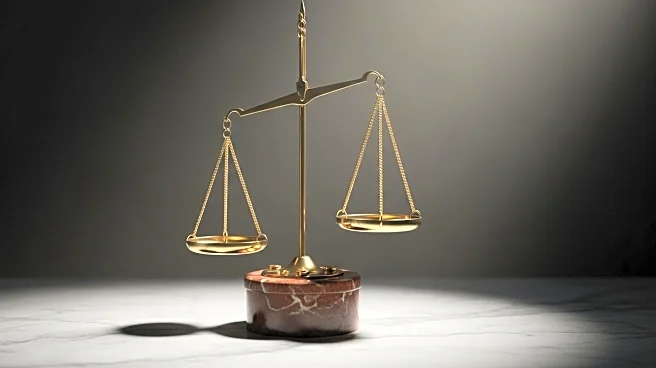What's Happening?
The Supreme Court has begun a new term with a focus on President Trump's extensive claims of executive power. The court will review several key cases, including those concerning voting rights and LGBTQ issues. Central to this term is the evaluation of Trump's executive orders, such as those related to tariffs and birthright citizenship. The conservative majority has shown initial support for Trump's emergency appeals, but more detailed examinations may reveal skepticism. The court will also consider Trump's authority to remove independent agency members without cause, potentially revising a 90-year-old legal precedent.
Why It's Important?
The Supreme Court's rulings on these issues could significantly influence the scope of presidential power in the United States. Upholding Trump's executive actions could empower future presidents to enact similar policies unilaterally, affecting economic and immigration policies. The decisions will also impact the legal standards for dismissing federal officials, potentially affecting the independence and functioning of government agencies. These outcomes will shape the legal landscape for executive authority and its limits.
What's Next?
The court is expected to hear arguments on these cases over the next several months, with decisions anticipated by the term's end. Political leaders, businesses, and advocacy groups will be closely watching the proceedings. Depending on the rulings, there may be legislative responses or additional legal challenges. The administration's appeals against lower court decisions blocking Trump's orders will be a focal point, with potential hearings in late winter or early spring.









